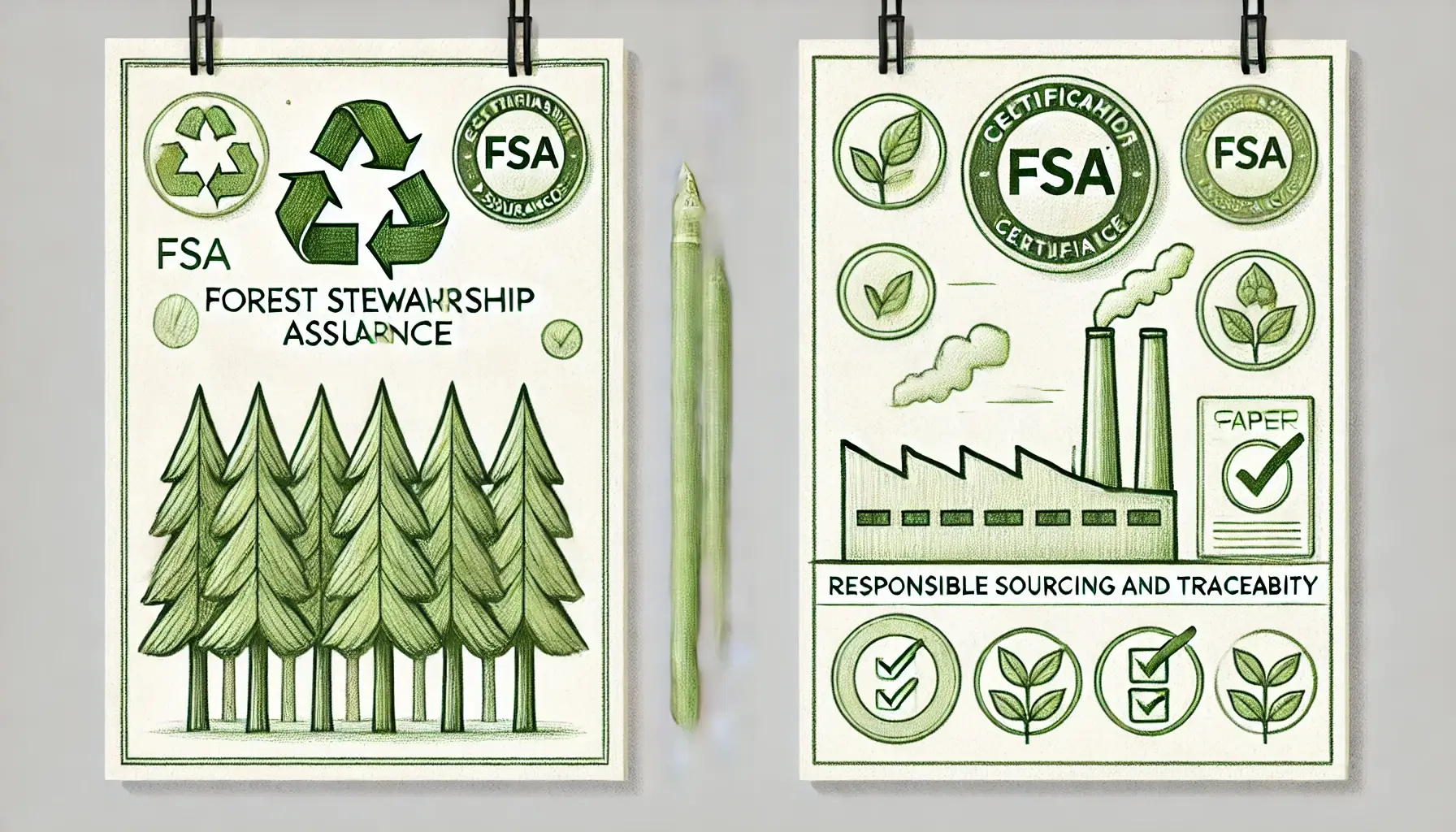As sustainability becomes increasingly important in business, companies are looking for ways to demonstrate their commitment to responsible sourcing. One of the key certifications in the forest and paper industry is the FSA (Forest Stewardship Assurance) Certification. This certification plays a critical role in ensuring that paper and packaging products are sourced from responsibly managed forests.
What is FSA Certification?
FSA Certification is a globally recognized standard that ensures forests are managed in an environmentally responsible, socially beneficial, and economically viable manner. The certification focuses on sustainable forestry practices, promoting the preservation of biodiversity, protecting ecosystems, and supporting local communities. FSA-certified products give consumers confidence that the materials they use are sourced sustainably.
Why is FSA Certification Important?
- Sustainability: FSA certification ensures that the forests from which paper products are sourced are managed sustainably. This means that trees are harvested in a way that does not deplete resources or damage ecosystems, allowing forests to regenerate and thrive.
- Market Trust: FSA certification provides a level of transparency and trust in the marketplace. Consumers and businesses alike can be confident that they are using products from responsible sources, which enhances brand reputation.
- Compliance: In many industries, FSA certification is a requirement to meet regulatory and industry standards. It helps companies comply with environmental laws and meet sustainability goals.
- Biodiversity Conservation: The FSA standard promotes the protection of biodiversity. By maintaining the natural habitats of forest ecosystems, FSA-certified products help conserve wildlife and plant species that are critical to global environmental health.
- Supply Chain Transparency: FSA certification ensures that every step of the supply chain, from forest management to production, follows responsible practices. This traceability provides assurance that materials have been ethically sourced.
Benefits of FSA Certification for Businesses
- Access to New Markets: FSA certification opens doors to new markets, particularly in industries that prioritize sustainability. Many companies, especially in sectors like retail, packaging, and printing, require their suppliers to use certified materials.
- Improved Brand Image: Consumers today are more eco-conscious, and they prefer to support businesses that demonstrate a commitment to sustainability. FSA certification allows companies to showcase their dedication to responsible sourcing, improving their brand image and customer loyalty.
- Cost Efficiency: Managing forests sustainably not only ensures long-term resource availability but also improves operational efficiency by reducing waste and promoting responsible harvesting methods.
How to Obtain FSA Certification
Achieving FSA certification requires companies to undergo a rigorous auditing process. This involves a third-party assessment of forest management practices, including tree harvesting methods, ecosystem preservation, and social responsibility. The certification process also includes regular audits to ensure ongoing compliance with FSA standards.
Conclusion
FSA certification is more than just a label—it’s a commitment to sustainable, responsible forest management. For companies in the paper and packaging industry, FSA certification is a key step toward enhancing their environmental responsibility, improving market access, and meeting consumer expectations. By choosing FSA-certified products, businesses can contribute to a healthier planet while building trust and credibility with their customers.
